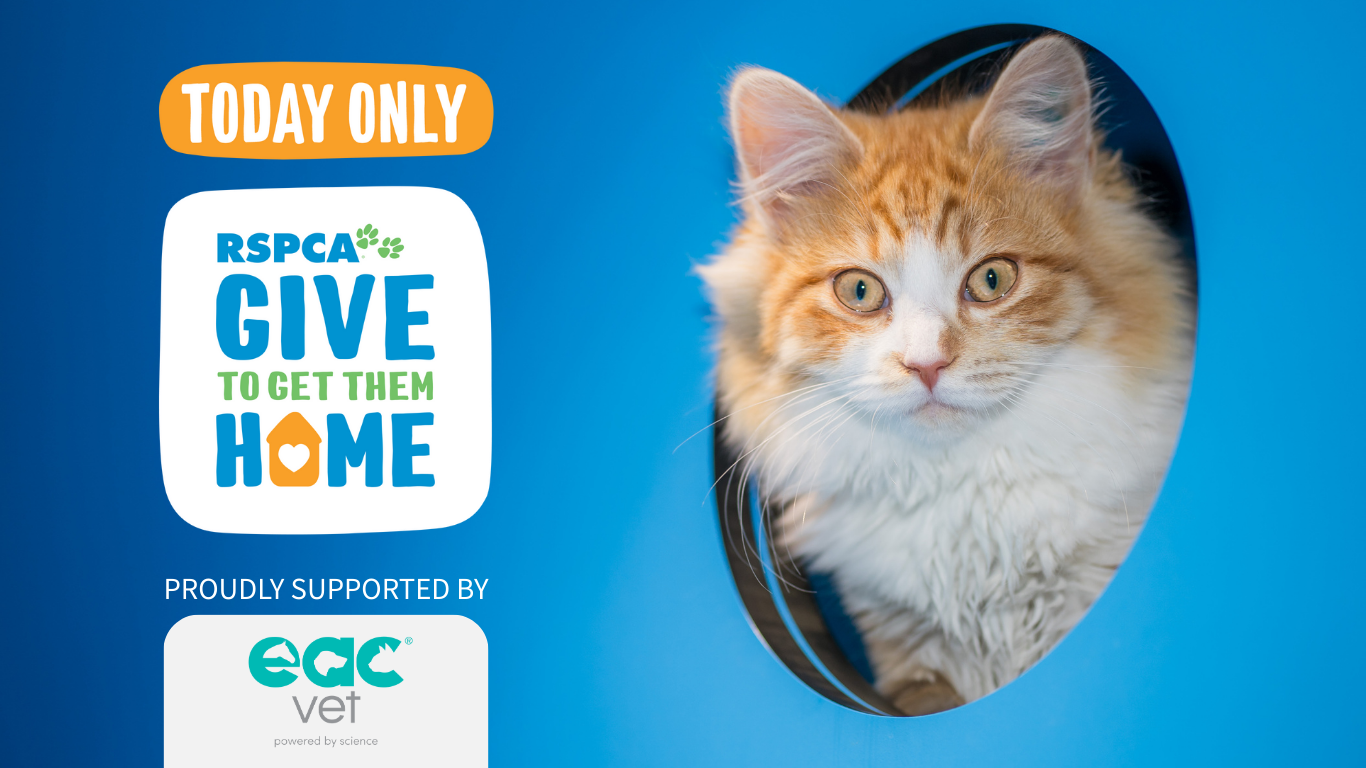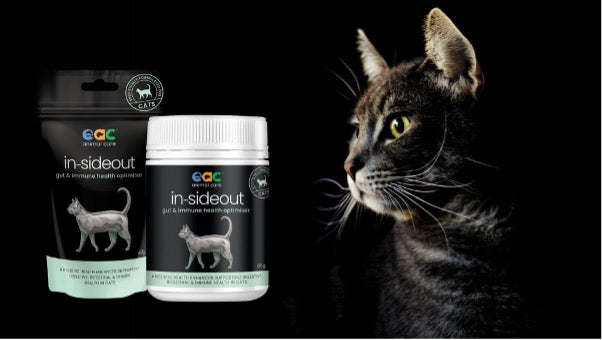Constipation is an uncomfortable and sometimes dangerous condition for your pet, so it's important to know what to do if you suspect your dog is having difficulty passing stool. In this article, we discuss signs of constipation, potential causes, available treatment options and prevention methods. If you're a cat owners, see our article on constipated cats.
Key Takeaways:
-
Constipation is a common dog digestive problem often caused by insufficient water intake, inadequate nutrition, certain medications or a lack of exercise.
-
The most common symptoms of constipation are hard, dry stool, decreased appetite, lethargy and abdominal discomfort.
-
To treat dog constipation, a vet may recommend dietary changes (such as adding fibre supplements or probiotics to the diet) and/or providing a stool softener.
-
In severe cases, a vet may manually remove impacted stool.
-
Pet owners can prevent constipation by giving dogs more exercise, plenty of fresh water and a high-fibre diet.
What is Dog Constipation?
Dog constipation is a condition in which your pet has difficulty passing feces. This may mean that the dog is unable to pass any stool or can pass only small amounts of very hard or dry stool.
What Causes a Dog's Constipation?
During regular digestion, waste is propelled through the intestines to the colon with an automatic muscular motion called peristaltic waves. As it continues along its journey, water and electrolytes are absorbed until only a solid stool remains for elimination.
If this process is hindered, the colon will continue absorbing moisture and cause stool to become harder, drier and more difficult to expel.
Potential causes of constipation include:
-
Dehydration (hot weather)
-
Lack of exercise
-
Low-fibre diet
-
Blockage due to something the dog ate that is too big to pass through the colon
-
Hormonal imbalances or diseases such as diabetes, hypothyroidism and Cushing's disease
-
Spinal injuries or lesions that interfere with the peristaltic wave
-
Certain medications or food items (like bones)
-
Enlarged colon or prostate
-
Anxiety
-
Anal gland issues

Dog Constipation Symptoms
If you take your furry friend out to do its business regularly, you will likely notice signs of problems in the digestive tract. The dog's health problem will be evident if it has hard, dry stools or no stools at all. Constipated dogs may also express discomfort and even distress when attempting to pass fecal matter.
Other signs of problems in a dog's digestive tract include:
-
Straining to defecate
-
Pain while trying to go, especially if a blockage is present
-
Whining, restlessness or pacing
-
Squatting frequently
-
Not wanting to go for walks
-
Decrease in appetite
-
Vomiting
-
Abdominal bloating or discomfort
Many treatments are available, depending on what is causing constipation, and most dogs can be treated with home remedies and lifestyle adjustments. However, a vet visit is usually in order if your dog is constipated. The vet can properly diagnose what is causing the dog's constipation and recommend the best treatment plan.
What to Give a Dog for Constipation
Most pet owners can successfully treat constipation in dogs with diet and exercise adjustments. We discuss a few of the most common solutions to dog digestive issues below.
Change the Dog's Food
A constipated dog may need more fibre in its diet. Increasing dietary fibre can help the intestines move the stool through the system. Look for high-fibre dog food that contains natural fibre sources, such as fresh pumpkin or sweet potatoes.
You can also feed sweet potato or pumpkin puree as an additive to a dry food diet or add a small amount of wet canned food to the diet for more moisture. When a dog eats wet food, it increases the moisture content in the bowels and helps the fecal matter move along.
Add Fibre Supplements to the Dog's Diet
Fibre supplements, such as psyllium husk and bran, can be added to your dog's diet with your vet's support. Fibre supplements can help the stool become softer and easier to pass.
in-fibre Psyllium Husk for Horses, Dogs and Cats is human food grade psyllium husk. This natural source of fibre helps relieve constipation symptoms and diarrhea and boosts anal gland excretion, creating better digestive health and more normal stools.

CLICK TO VIEW
Give the Dog Probiotics
Probiotics are beneficial bacteria that help maintain the balance of healthy bacteria in your dog's digestive system. Pre and probiotics can be taken as supplements and are available in some pet foods. Probiotics improve gut health, digestion and stool quality.
in-sideout Dog Formula - Pre & Probiotic Nutraceutical Supplement for Dogs is one example of a good canine probiotic supplement. The holistic dog supplement enhances intestinal, immune and digestive health with a blend of natural ingredients.
in-sideout Dog Formula supports the immune system and overall vitality of pets, making it a good choice for alleviating digestive issues and other canine health problems.
Provide Plenty of Water
Make sure your pet has plenty of water available throughout the day. It's best to have more than one water bowl to make water access convenient.
Encourage your dog to drink more by adding low-sodium broth or a bit of tuna water to the bowl.
Massage the Dog's Belly
Gently massaging your pet's abdomen can encourage the movement of stool along the colon. Start at the back near the tail and gently massage in a clockwise direction.
Encourage Exercise to Stimulate the Digestive Tract
Regular exercise stimulates the digestive tract and encourages bowel movements. Take dogs for longer walks or play fetch to get their digestive system moving.
Also, address issues like joint pain that may lead to a lack of exercise and subsequent digestive problems. Supplements like in-fusion msm and infusion-ha support healthy joints and offer many other benefits to dogs.
Give the Dog an Enema
If home treatments are unsuccessful, your vet may prescribe medications or other treatments to relieve constipation.
The most common medications for constipation in dogs are laxatives and stool softeners, which can be given orally or rectally. Other treatments may include enemas, intravenous fluids and antibiotics if an underlying infection is present.
Surgery
In severe cases, the manual removal of an obstruction may be necessary. If that's the case, the vet will perform surgery to help re-establish regular bowel movements. Your vet may also recommend surgery if your dog has an enlarged prostate or a tumour causing constipation.
FAQs About Dog Constipation and Solutions
Pet owners often have concerns when a dog is constipated. We provide answers to some of the most commonly asked questions about constipation below.
What Are the Potential Complications of Dog Constipation?
The potential complications of dog constipation include dehydration, loss of appetite, abdominal discomfort and, in rare cases, intestinal blockage. If your pet displays signs of any of these complications, contact your veterinarian immediately.
In worst-case scenarios, untreated dog constipation can lead to a rupture in the dog's colon. This is an emergency requiring immediate veterinary care.
What Foods Are Good for Relieving Constipation?
Foods high in dietary fibre and moisture, such as canned pumpkin, sweet potatoes, and wet canned dog food, may relieve or prevent constipation. Pumpkin puree is excellent for providing extra moisture and fibre, facilitating normal bowel movements.
Dogs typically like the taste of pumpkin puree, which can be added to their meals or given as a treat. However, if you plan to feed pumpkin, use 100% pumpkin product and not pumpkin pie filling.
With your vet's approval, olive oil and coconut oil can also be added to the pet's diet. Olive oil and coconut oil may soften stool. These oils should be given in small quantities and monitored closely, as they can cause loose stools and other issues if given in excess.
Keep in mind that oils usually don't help with current compaction. They're better for preventing compaction in dogs.
How Can Dog Owners Prevent Constipation in Canines?
Dog owners can help prevent constipation by providing high-fibre dog food (or fibre supplementation, such as psyllium husk and bran), exercise and fresh water. Also, keep an eye on what your pet is eating, as some human foods and other items, like bones and kitty litter, can be dangerous for dogs and prevent a normal bowel movement.
Finally, canine owners can supplement dog nutrition as needed to facilitate good digestion and optimal overall health. You can give your dog holistic nutraceutical products like in-sideout Dog Formula to boost general health and promote good digestion.
Dogs with joint pain may require additional, targeted supplementation. For example, dogs with limited movement due to joint pain are more likely to experience constipation. Joint supplements, like infusion-msm or infusion-ha, may give your dog the relief it needs to move around and get exercise.
What Is Chronic Constipation?
Chronic constipation is when your dog experiences long-term difficulties with regularly passing normal stool, usually due to an underlying condition. Several issues, including diet, lack of exercise, stress and certain medications, can cause chronic constipation.
If your pet has been experiencing constipation for an extended period of time, it is crucial to bring them to the vet for a thorough check-up, as the dog might have an underlying condition that needs to be treated.
In addition, if your pet's constipation worsens or it hasn't had a normal bowel movement in a few days, contact your vet.
Boost Digestion with Home Remedies and Veterinary Medicine
In summary, dog constipation is a common problem caused by various issues, from dietary to medical.
To relieve constipation in your dog, supply a high-fibre diet, more playtime and lots of clean water. If home remedies don't resolve the problem, your vet may prescribe medications or other treatments to help relieve your dog's constipation.
You can take steps to prevent future episodes of constipation by giving your dog enough fibre and lots of exercise, monitoring what your pet eats and providing




